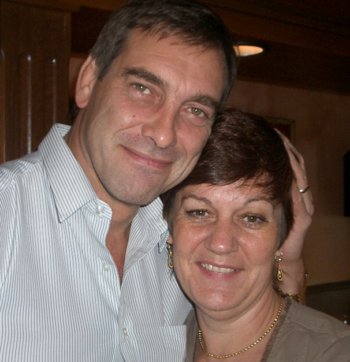
The families and living claimants of most of the previous assisted dying legal cases have come together for the first time, to urge the UK Secretary of State for Justice to instigate a review into assisted dying or call on the UK Parliament to conduct one, in an open letter published today.
The letter, which includes signatories from Debbie Purdy’s widower Omar Puente, Tony Nicklinson’s wife Jane Nicklinson, the mother of Omid T, and latest assisted dying claimant Phil Newby, highlights that the evidence in favour of assisted dying has significantly changed since Parliament last debated legal reform, and that public opinion has dramatically shifted in support of a new law.
The letter was organised by Humanists UK, which campaigns to legalise assisted dying for both the terminally ill and incurably suffering, and appears in The Guardian today, following the eighth anniversary of humanist and right-to-die campaigner Tony Nicklinson’s death. After his death Tony’s case was taken over by his widow Jane and by fellow campaigner Paul Lamb, and went to the Supreme Court.
Sign our petition to the Justice Secretary calling for a public inquiry
The letter is below, as published in The Guardian:
We represent the families and living claimants of most of the previous assisted dying legal cases. We have come together, for the first time, because we now believe there is an overwhelming case to set up an inquiry into the law.
It has now been half a decade since Parliament last examined legislation to legalise assisted dying, and fifteen years since it formally scrutinised the evidence. In that time, the number of Britons travelling to Switzerland had rocketed sixfold; successive countries, including Canada, Germany, Italy, and parts of the United States and Australia have legalised assisted dying, demonstrating that such changes can be achieved in a safe and compassionate way; public opinion has dramatically risen to nearly 90% supporting a change in the law for the terminally ill and incurably suffering; and there has been a significant shift in medical opinion and from within the disability community.
Following our unsuccessful legal cases, it is now obvious that parliamentarians alone have a responsibility to look at this matter again. They must not allow our cases to become the final word on the matter, or else countless others will experience the indignity, suffering, and agony that we can attest that this law creates.
The evidence on assisted dying has simply changed, and Parliament cannot afford to turn a blind eye any longer.
Humanist UK’s Chief Executive Andrew Copson said:
‘The signatories to this letter are uniting to call for a review into one of the most morally unjust laws in our country. For too long some politicians’ aversion to talking about the merits of a dignified death have forced people to suffer in silence. But now, after more than fifteen years since the last serious parliamentary scrutiny, and an overwhelming change in evidence in the interim, it is time for the voices of those facing a terminal illness or incurable suffering to be heard.
‘The case for an inquiry into assisted dying is underpinned by a simple but undeniable logic – when the facts change, so must our understanding. We welcome this initiative as a means of equipping Parliament with the information it needs to conduct an informed debate, and hope it will spur the Justice Secretary to launch an inquiry that is now long overdue.’
Notes:
For further comment or information, please contact Humanists UK Assisted Dying Campaigner Keiron McCabe at keiron@humanists.uk or phone 020 7324 3001.
Read more about our work on assisted dying.
Humanists UK is the national charity working on behalf of non-religious people. Powered by over 85,000 members and supporters, we advance free thinking and promote humanism to create a tolerant society where rational thinking and kindness prevail. We provide ceremonies, pastoral care, education, and support services benefitting over a million people every year and our campaigns advance humanist thinking on ethical issues, human rights, and equal treatment for all.
